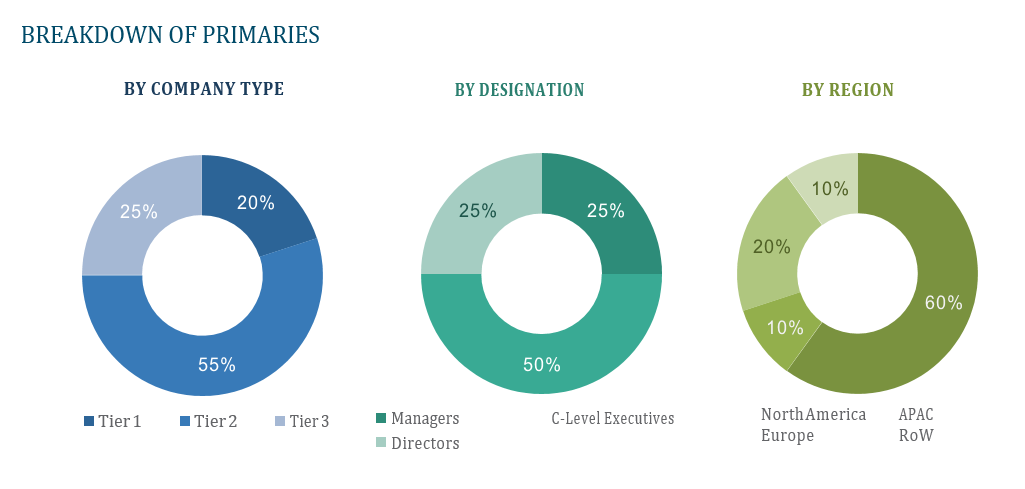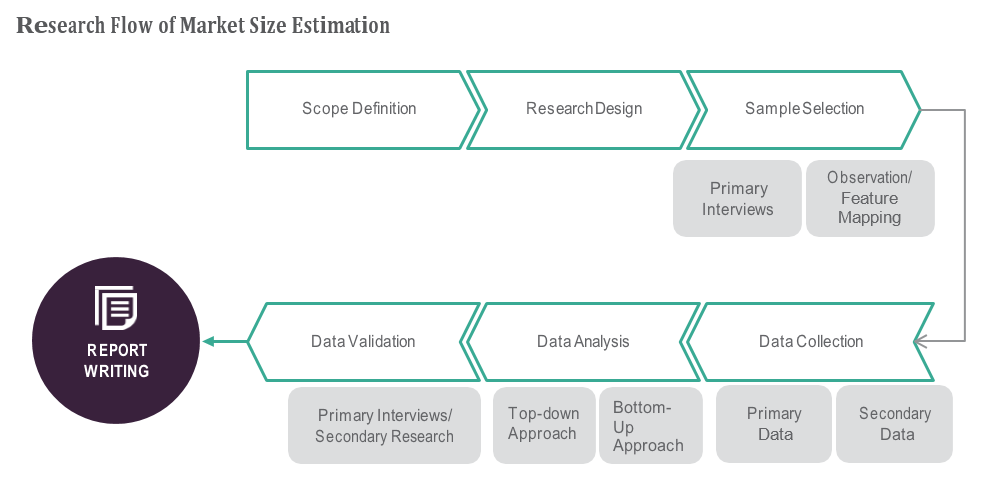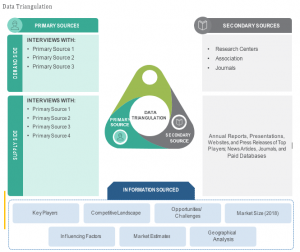OVERVIEW
The Recombinant Proteins Market is currently valued at USD 2.2 billion in 2024 and will be growing at a CAGR of 7.2% over the forecast period to reach an estimated USD 3.2 billion in revenue in 2029. The recombinant proteins market is a dynamic sector within the biopharmaceutical industry, characterized by the production of proteins through genetic engineering techniques. These proteins, synthesized from DNA sequences in heterologous expression systems such as bacteria, yeast, or mammalian cells, serve diverse applications spanning therapeutics, diagnostics, research, and industrial processes. This market’s growth is fueled by increasing demand for biopharmaceuticals, advancements in protein engineering technologies, and expanding applications in personalized medicine and biotechnology. Key players in the recombinant proteins market continually innovate to enhance production efficiency, product quality, and therapeutic efficacy, driving forward the development of novel biologics and biosimilars to address unmet medical needs worldwide.
The rising prevalence of chronic diseases, such as cancer, autoimmune disorders, and infectious diseases, fuels the demand for innovative biopharmaceuticals, including recombinant proteins, as effective therapeutic interventions. Additionally, advancements in biotechnology and genetic engineering techniques continually enhance the production efficiency and scalability of recombinant protein manufacturing, lowering production costs and facilitating wider accessibility. Moreover, increasing investment in research and development activities, coupled with supportive regulatory frameworks for biologics, stimulates innovation and accelerates the introduction of new recombinant protein-based therapies and diagnostics. Furthermore, the expanding applications of recombinant proteins in fields like personalized medicine, regenerative medicine, and industrial biotechnology contribute to the market’s growth trajectory by unlocking new opportunities for product development and commercialization. These drivers collectively foster a dynamic landscape for recombinant proteins, driving market expansion and innovation in the biopharmaceutical sector.
Table of Content
Market Dynamics
Drivers:
The rising prevalence of chronic diseases, such as cancer, autoimmune disorders, and infectious diseases, fuels the demand for innovative biopharmaceuticals, including recombinant proteins, as effective therapeutic interventions. Additionally, advancements in biotechnology and genetic engineering techniques continually enhance the production efficiency and scalability of recombinant protein manufacturing, lowering production costs and facilitating wider accessibility. Moreover, increasing investment in research and development activities, coupled with supportive regulatory frameworks for biologics, stimulates innovation and accelerates the introduction of new recombinant protein-based therapies and diagnostics. Furthermore, the expanding applications of recombinant proteins in fields like personalized medicine, regenerative medicine, and industrial biotechnology contribute to the market’s growth trajectory by unlocking new opportunities for product development and commercialization. These drivers collectively foster a dynamic landscape for recombinant proteins, driving market expansion and innovation in the biopharmaceutical sector.
Key Offerings:
In the recombinant proteins market, key offerings encompass a diverse array of products and services tailored to meet the needs of various stakeholders across the biopharmaceutical and life sciences sectors. Primary offerings include a wide range of recombinant proteins engineered for therapeutic, diagnostic, and research applications, addressing conditions such as cancer, autoimmune diseases, infectious diseases, and metabolic disorders. These proteins may include monoclonal antibodies, growth factors, cytokines, enzymes, hormones, and vaccines, among others, produced through advanced bioprocessing technologies. Additionally, companies in this market provide comprehensive services encompassing protein expression, purification, characterization, and analytical testing to support biopharmaceutical development and manufacturing processes. Furthermore, custom synthesis and contract manufacturing services offer flexibility and scalability to meet specific project requirements, while technical expertise and regulatory support ensure compliance with quality standards and regulatory requirements, thus facilitating the successful translation of innovative recombinant protein-based therapies from bench to bedside. These key offerings collectively contribute to the advancement of biopharmaceutical research, development, and commercialization, driving progress and innovation in the recombinant proteins market.
Restraints :
The recombinant proteins market is subject to numerous prominent restrictions that could potentially impede its progress, despite its promising growth trajectory. The high cost of developing, producing, and marketing recombinant protein-based treatments is a major obstacle that results from intricate production procedures, onerous regulatory constraints, and large investments in research and development. In addition, corporations bear a financial risk in the event of a product failure during clinical development, which could result in significant losses and postpone the launch of novel medications. Furthermore, issues with recombinant protein immunogenicity, stability, and consistency of quality continue to be major obstacles that require thorough characterisation and validation procedures to guarantee product safety and effectiveness. In addition, concerns about intellectual property, such as the expiration of patents and the introduction of biosimilars, increase pricing pressure and competition, which affects original goods’ profit margins and market share. Last but not least, scale issues, especially in the synthesis of complex proteins and biologics, impede the global acceptance of recombinant protein-based treatments by restricting their accessibility and cost to patients. In order to overcome these obstacles and realise the full potential of the recombinant protein market, industry players, legislators, and regulatory bodies must work together to promote innovation, improve manufacturing efficiency, expedite regulatory procedures, and expand access to reasonably priced biopharmaceuticals.
Regional Information:
• In North America, the recombinant proteins market is propelled by robust research and development activities, a strong biotechnology infrastructure, and favorable regulatory frameworks supporting biologics innovation. The presence of major biopharmaceutical companies, academic institutions, and research centers fosters a dynamic ecosystem for protein therapeutics development and commercialization. Additionally, increasing investments in biotechnology startups and collaborations between industry players and academic institutions drive innovation and accelerate the introduction of novel recombinant protein-based therapies.
• Europe, the market benefits from a well-established pharmaceutical industry, advanced manufacturing capabilities, and a supportive regulatory environment encouraging biosimilar development and market access. Key market players leverage strategic partnerships, acquisitions, and alliances to expand their product portfolios and geographic presence, tapping into the growing demand for biopharmaceuticals across diverse therapeutic areas.
• In the Asia-Pacific region, rapid economic growth, increasing healthcare expenditures, and a burgeoning biotechnology sector drive market expansion. Countries like China, India, and South Korea emerge as key hubs for biopharmaceutical production and research, offering cost advantages and skilled labor pools.
Recent Developments:
• In February 2023, Bio-Techne (US) and Cell Signaling (US) entered into the partnership to allow researchers to validate simple western antibodies.
• In May 2023, Thermofisher Scientific Inc (US) and National Research and Innovation Agency of Indonesia (BRIN) signed a Memorandum of Understanding (MOU) for enabling and enhancing the national research and innovation infrastructure and capability in Indonesia.
Key Players:
Amgen, Genentech, Novo Nordisk, AbbVie, Eli Lilly, Merck, Pfizer, Biogen, Sanofi, and Johnson & Johnson.
– The Recombinant Proteins Market is expected to reach an estimated value of USD 5.62 billion in revenue by 2029.
2) What is the estimated CAGR of the Recombinant Proteins Market over the 2024 to 2029 forecast period?
– The CAGR is estimated to be 15.1% for the Recombinant Proteins Market over the 2024 to 2029.
3) Who are the key players in the Recombinant Proteins Market ?
– Amgen, Genentech, Novo Nordisk, AbbVie, Eli Lilly, Merck, Pfizer, Biogen, Sanofi, and Johnson & Johnson.
4) What are the drivers for the Recombinant Proteins Market ?
– Chronic diseases increase demand for innovative biopharmaceuticals like recombinant proteins. Advancements in biotechnology and genetic engineering improve production efficiency, lower costs, and increase accessibility. Investment in research and regulatory frameworks accelerates innovation. Expanding applications in personalized medicine, regenerative medicine, and industrial biotechnology drive market growth and innovation in the biopharmaceutical sector.
5) What are the restraints and challenges in the Recombinant Proteins Market ?
– The recombinant proteins market faces challenges such as high costs, product failure risks, immunogenicity, stability, quality consistency, intellectual property issues, and scalability. These factors hinder the widespread adoption of these therapies, limiting their availability and affordability. To overcome these restraints, collaboration between industry stakeholders, policymakers, and regulatory authorities is needed to foster innovation, improve manufacturing efficiency, streamline processes, and improve access to affordable biopharmaceuticals.
6) What are the key applications and offerings of the Recombinant Proteins Market ?
– The recombinant proteins market offers a variety of products and services for biopharmaceutical and life sciences sectors. These include therapeutic proteins for conditions like cancer, autoimmune diseases, and metabolic disorders. Companies also provide services like protein expression, purification, characterization, and analytical testing. Custom synthesis and contract manufacturing offer flexibility and scalability, while technical expertise ensures quality standards and regulatory compliance.
7) Which region is expected to drive the market for the forecast period?
– North America is expected to have the highest market growth from 2024 to 2029
Why Choose Us?
Insights into Market Trends: Global Market Studies reports provide valuable insights into market trends, including market size, segmentation, growth drivers, and market dynamics. This information helps clients make strategic decisions, such as product development, market positioning, and marketing strategies.
Competitor Analysis: Our reports provide detailed information about competitors, including their market share, product offerings, pricing, and competitive strategies. This data can be used to inform competitive strategies and to identify opportunities for growth and expansion.
Industry Forecasts: Our reports provide industry forecasts, which will inform your business strategies, such as investment decisions, production planning, and workforce planning. These forecasts can help you to prepare for future trends and to take advantage of growth opportunities.
Access to Industry Experts: Our solutions include contributions from industry experts, including analysts, consultants, and subject matter experts. This access to expert insights can be valuable for you to understand the market.
Time and Cost Savings: Our team at Global Market Studies can save you time and reduce the cost of conducting market research by providing comprehensive and up-to-date information in a single report, avoiding the need for additional market research efforts.












